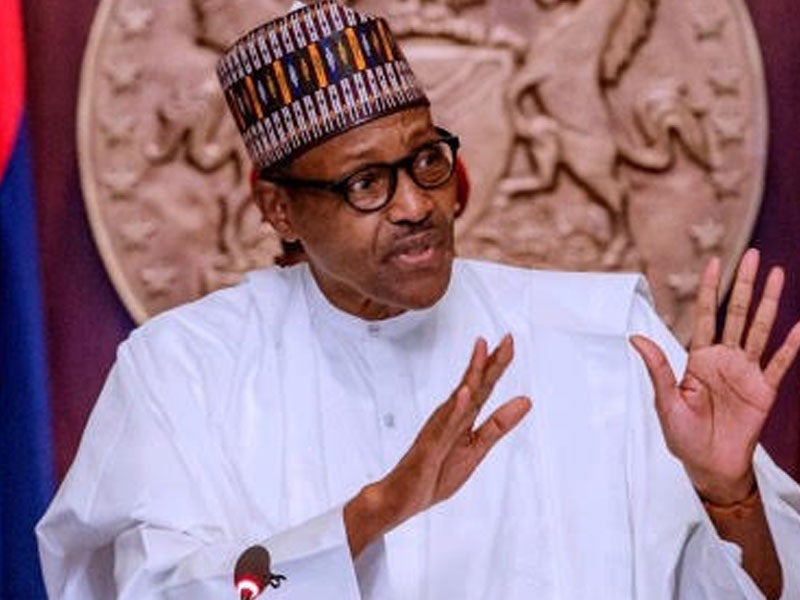In the latest fiscal assessment of the country, almost all Ministries, Departments and Agencies (MDAs) have been indicted for financial wrongdoings.
The indictment came against the backdrop of the much-talked-about fight against corruption being waged by the Federal Government.
Some of the cases of irregularity included improper records of transactions, unsubstantiated claims and outright non-report.
For instance, an estimated N500 billion was submitted to the National Assembly. But the money, according to the 2016 report by the Office of the Auditor-General of the Federation, was not properly accounted for.
The situation however might not be resolved any sooner because of a lack of enabling laws that would compel and sanction erring MDAs that ignore audit queries.
The Auditor-General of the Federation (AGF), Anthony Ayine, lamented that the gross violation of statutory financial reporting obligations by government agencies is worrisome.
“Most of the government corporations, companies and commissions have not submitted their audited accounts for 2016 to me. Only 51 audited financial statements for 2016, and 149 for 2015, have been submitted to my office as at December 27, 2017, despite the provision of Financial Regulation 3210(v), which enjoins these bodies to submit both audited accounts and management report to me not later than May 31 of the following year of account.
“As at April 2018, 109 agencies have not submitted beyond 2013; 76 agencies last submitted for the 2010 financial year; while 65 agencies have never submitted any account since inception,” Ayine said.
An analysis of the report showed that government agencies, despite the anti-corruption campaign, have increasingly become more reckless with public finance, with 323 agencies failing to submit reports in 2016. In 2015 and 2014 however defaulters numbered 215 and 148.
Highlighting a breach of transparency and accounting standards, the report further detailed unremitted deductions worth more than N3.79 billion involving over 40 agencies including the presidency, Economic and Financial Crimes Commission (EFCC), and the National Assembly.
It noted that about N13.96 billion reported as salaries and wages in the consolidated financial statement of the EFCC were not in the anti-graft agency’s trial balance submitted for reconciliation.
Besides, the EFCC was listed as one of the agencies with “doubtful cash balance” of over N315 million. Others on the list include the House of Representatives (N291.68 million) and Lagos University Teaching Hospital (N343.7 million).
The State House, Office of the Chief of Staff to the President, and EFCC led 62 other MDAs on the list of government offices with outstanding personal advances estimated at N4.87 billion as at December 31, 2016.
The audit inspection of accounting records at the Federal Ministry of Health showed several overdue cash advances of N380.9 million outstanding as at October 2016. Some of these have been outstanding since 2014, even as multiple others were granted without retiring the previous ones, contrary to financial regulations on granting and retirement of advances.
The magnitude of the amount involved suggests the absence of an effective internal control in respect of advances.
At the Ministry of Trade and Investment, 13 payment vouchers of N60.39 million were raised for payment of estacode and air tickets for staff. All were, however, without supporting documents as required by Financial Regulation 603.
President Muhammadu Buhari has consequently been accused of encouraging fiscal indiscipline by refusing to assent to sensitive bills on fiscal governance. He has also been blamed for showing a lack of concern for the economy by keeping the national budget perpetually “incapacitated” and subjecting it to a three-month abuse by delaying the appointment of ministers.
The president who has repeatedly said he would return the budget calendar to the January-December cycle rejected the Budget Timeframe Bill and has not come up with a working alternative. Also, since January 2019, a duly passed Federal Audit Reform Bill sent to him for assent has not been signed. There has not been any communication from the presidency about its rejection.
The bills however have lapsed. Since the Eighth Assembly which drafted them has ended, they would require fresh legislative exercise, lasting years perhaps, and additional millions of naira in cost.
The fiscal anomaly meanwhile appears set to continue.
In his reaction, Taiwo Oyedele, Partner/Head of Tax and Corporate Advisory Services at PwC Nigeria, stressed the need for fiscal transparency in the country. He cited a national survey by the Nigerian Economic Summit Group, which showed that about two in every three adults do not trust government with their taxes, hence about 83 per cent of individuals and nearly 70 per cent of businesses do not consider tax evasion as wrong.
“With such a high level of apathy towards tax, it is impossible to move the needle on revenue generation. Government at all levels must urgently start taking steps to address fiscal transparency issues to build the much-needed trust in the system.
“Based on the audit report by the AGF, it was revealed that the National Assembly, the presidency and some agencies such as the EFCC defaulted in remitting various taxes, including the Pay As You Earn of their staff and Value Added Tax (VAT) on payments to their vendors,” Oyedele said.
Auditor-general indicts presidency, accuse agencies of violating accounting rules






